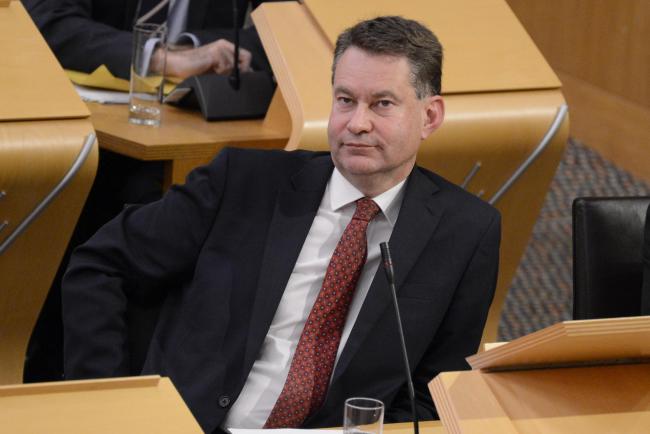
HOLYROOD is deciding whether to pass sweeping new laws which would allow the Government to enforce lockdowns without parliamentary approval.
The Coronavirus (Recovery and Reform) (Scotland) Bill is being debated for the first time at Holyrood on Thursday.
Ministers say it is an “important safeguard”, while opponents have branded it an “SNP power grab”.
This is everything you need to know.
What is the Coronavirus (Recovery and Reform) Bill?
The Bill is split into five parts.
The first two parts, which change the way ministers can react to public health emergencies, are the most controversial.
If passed, the legislation would allow the Government to shut schools, bring in lockdowns and close down hospitality and tourism businesses without the say so of MSPs. These powers are similar to those granted on a temporary basis during the pandemic.
These so-called “Henry VIII” powers have caused concern among opposition MSPs.
The third part changes the way services such as birth and death registrations are handled, with the rules changed to allow them to be conducted electronically if necessary.
The fourth part relates to eviction from properties in the private rented sector and the fifth to changes in the justice system.
What has the reaction been like?
The Government insists the Bill will serve as an “important safeguard” to allow it to react effectively to future public health emergencies.
However, 90% of the 4000 organisations and individuals who responded to a consultation by the Scottish Parliament’s Covid recovery committee were opposed to the Bill.
Tory MSP Murdo Fraser, the committee deputy convener, said: “I can’t remember in two decades a piece of legislation in this parliament attracting that level of public concern.

“People expressed concerns about personal liberty and the lack of parliamentary scrutiny over what is proposed.”
Covid Recovery Secretary John Swinney responded: “I suspect there have been other pieces of legislation that have attracted public concern. I suspect also the degree of public concern may have had something to do with the way some members of parliament characterised the legislation and I’m sure Mr Fraser knows the point I am making.”
LibDem leader Alex Cole-Hamilton also raised concerns on the eve of the vote.
He said: “If there is a future crisis, the Scottish Parliament has demonstrated that it is capable of working at speed to provide the necessary tools for tackling it.
“This should not be taken as an opportunity for a colossal SNP power grab, lining their pockets with powers that nobody would have countenanced handing over pre-pandemic.
"SNP ministers have a track record of taking decisions at the last minute with little regard for public accountability. Parliament should not be handing the keys to ministers to make decisions affecting everything from school closure to the mass release of prisoners behind closed doors.”
What have academics said?
Legal experts have also had their say on the proposed legislation.
Glasgow Caledonian University academics Dr Andrew Tickell, senior lecturer in law, and Alison Britton, professor of healthcare and medical law, published a response to the Bill.
They agreed it would make Parliament more able to react to future health emergencies but warned of “one highly problematic element”. They highted a clause which grants the power to “modify or amend” any act of parliament in an emergency.
Tickell and Britton said: “Clauses like this are often characterised in modern legal and political parlance as ‘Henry VIII powers’ after the Proclamations by the Crown Act empowered the king to make law without reference to the English parliament in 1539.
“In contemporary terms, the concept denotes a statutory power given by the legislature to the executive to alter or repeal primary legislation, without reference to the ordinary parliamentary processes of scrutiny and amendment required for bills.
“While powers of this kind have been used by the UK government to adapt the statute book to the United Kingdom’s departure from the European Union, Henry VIII powers are rightly controversial, as they infringe upon the separation of powers, give legislative functions to the executive, and can be imposed with modest opportunities for parliamentary scrutiny, particularly in circumstances when they are used on an emergency basis.”
When does the debate start?
The Stage 1 debate of the Coronavirus (Recovery and Reform) (Scotland) Bill starts at 2.55pm on Thursday, May 12. It is set to end at 5pm.
You can watch it live on Scottish Parliament TV.
Will it pass?
Despite concerns from opposition MSPs, the Bill is likely to pass with the backing of SNP and Green MSPs, who have a co-operation agreement.







